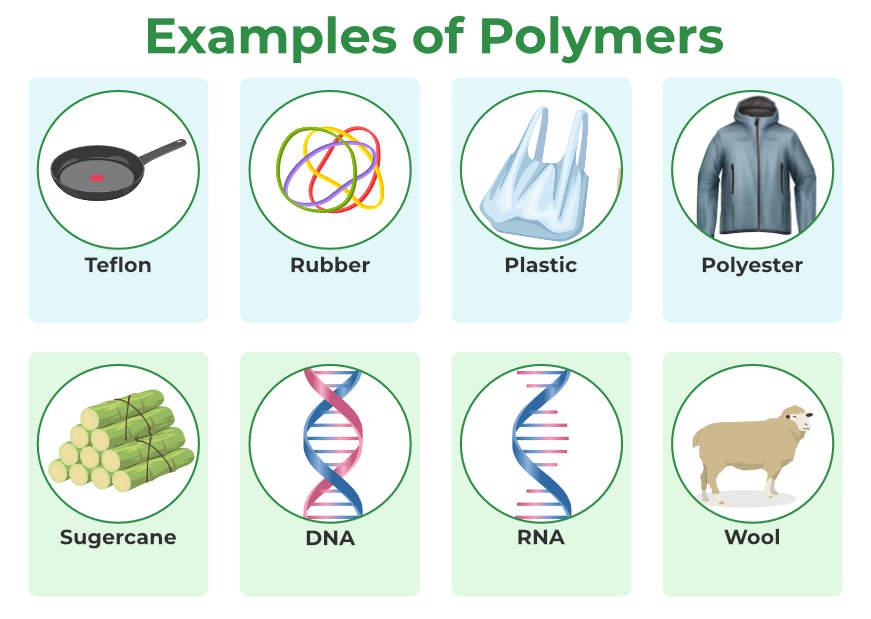Making Best Use Of the Potential of Polymers: Discover the Multifaceted Benefits and Practical Uses
The diverse benefits and practical usages of polymers continue to evolve, offering ingenious options to intricate obstacles. By checking out exactly how polymers can improve product sturdiness, drive sustainability efforts, transform medical care options, and pave the means for future technological developments, we can uncover a globe of possibilities waiting to be used.
Importance of Polymers in Modern Industries
Polymers play a crucial role in modern markets, functioning as functional materials that drive advancement and performance throughout a wide variety of industries. These intricate particles, composed of duplicated subunits, have changed sectors such as automobile, aerospace, electronic devices, healthcare, and much more. In the auto market, polymers have actually allowed the growth of lightweight yet sturdy parts, improving gas efficiency and total efficiency. Aerospace industries rely upon polymers for their high strength-to-weight proportion, important for airplane and spacecraft building. The electronic devices sector benefits from the insulating properties of polymers, crucial for producing motherboard and electronic tools (Polymers). In addition, polymers are extensively made use of in the medical care sector for medication shipment systems, medical gadgets, and biocompatible products. Their flexibility, sturdiness, and cost-effectiveness make polymers important in contemporary production procedures, fostering advancements and driving progression in various markets worldwide. Accepting the capacity of polymers is crucial to unlocking more technologies and resolving the advancing demands these days's commercial landscape.
Enhancing Product Toughness With Polymers
With an emphasis on durability and resilience, incorporating sophisticated polymer modern technologies into item layout has actually come to be a foundation of boosting durability in contemporary manufacturing processes. Polymers use a large range of residential properties that add to the total durability of products. One key benefit is their resistance to deterioration, chemicals, and weathering, making them optimal for usage in numerous industries where exposure to harsh conditions prevails.
Additionally, polymers can be customized to fulfill specific sturdiness requirements, enabling producers to tailor products according to their intended usage and anticipated life expectancy. By integrating polymers into item components, suppliers can improve toughness and impact resistance, lowering the chance of breakage or use with time.
In addition, polymers are lightweight yet sturdy, offering sturdiness without including unneeded weight to items. This particular is particularly advantageous in sectors such as aerospace and automotive, where lightweight products are necessary for enhancing gas efficiency and general efficiency.
Sustainability Advancements With Polymer Technology
In the realm of contemporary production and item design, the innovative application of polymers is driving substantial developments in sustainability methods. Polymer innovation plays a critical duty in improving sustainability by offering remedies that lower environmental effect see this website throughout various markets. One crucial facet where polymers excel is in enabling the growth of lightweight yet long lasting products that add to fuel effectiveness in transportation and lower total energy consumption. In addition, the recyclability and biodegradability of specific polymers even more advertise lasting techniques by reducing waste and air pollution.
In addition, developments in polymer innovation have caused the production of bio-based and renewable polymers, originated from all-natural resources such as plants, that offer a more lasting alternative to standard petroleum-based plastics. These environment-friendly polymers not only aid lower reliance on fossil gas but additionally decrease greenhouse gas discharges during manufacturing. By incorporating these ingenious polymers into producing procedures, business can reduce their environmental footprint and relocate towards more lasting practices, aligning with global initiatives to battle climate change and promote a circular economic climate.
Polymers in Healthcare: Revolutionizing Medical Solutions

One of the vital locations where polymers are making substantial strides remains in the advancement of targeted medication delivery systems. By enveloping drugs within polymeric nanoparticles or micelles, researchers next page can boost medication security, enhance bioavailability, and enable controlled release, resulting in more efficient therapy routines with reduced negative effects.
Furthermore, polymers are critical in the field of regenerative medication, where they are utilized to create scaffolds that mimic the extracellular matrix, supplying assistance for cell growth and cells regeneration. This modern technology holds enormous promise for fixing harmed organs, promoting wound healing, and progressing customized medicine approaches.
Basically, the combination of polymers in medical care is driving development, boosting treatment efficacy, and eventually enhancing individual end results in means previously believed unattainable.
Future Applications and Technologies in Polymer Technology
Progressing at the center of clinical discovery, polymer technology remains to pave the means for groundbreaking applications and developments forming diverse sectors. In the world of sustainable product packaging, biodegradable polymers are acquiring grip as ecologically pleasant choices to standard plastics. These polymers damage down normally, decreasing the ecological impact of single-use products. Additionally, in the area of electronics, conductive polymers are changing wearable technology and adaptable electronic devices. Their unique residential properties permit the development of elastic circuits and sensing units, allowing new possibilities in health care monitoring and smart clothing. In addition, polymer nanocomposites are boosting the mechanical and thermal properties of products, causing more powerful and lighter components in aerospace and vehicle sectors. Looking in advance, scientists are exploring the potential of shape-memory polymers for applications in robotics and biomedical tools, where materials that can "keep in mind" and go back to their original forms provide amazing opportunities for innovation. As polymer innovation continues to progress, the future holds endless chances for groundbreaking innovations across various sectors.
Verdict
